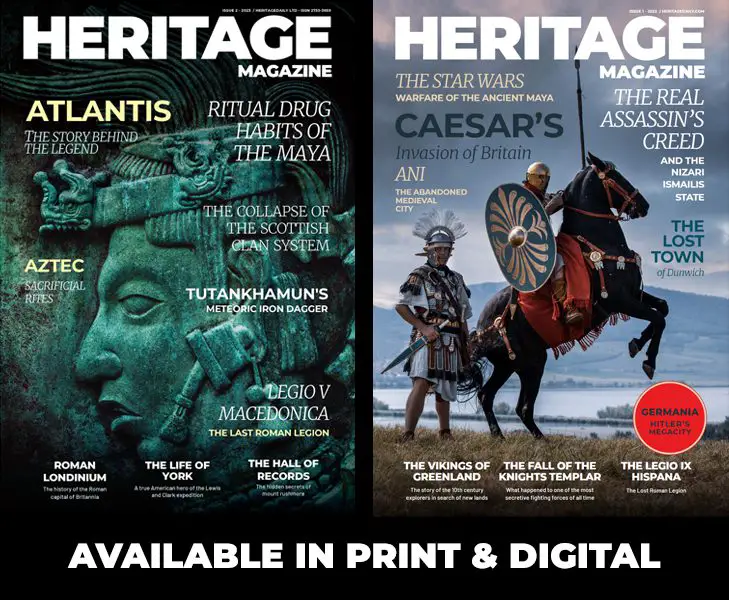Orkney Research Centre for Archaeology (ORCA) announces a collaborative maritime archaeology project surveying shipwrecks of the German High Seas Fleet and the war graves HMS Hampshire, HMS Vanguard and HMS Royal Oak.
This exciting project, which began on Sunday, is led by Sandra Henry, ORCA (Orkney Research Centre for Archaeology), University of the Highlands and Islands Archaeology Institute and Kevin Heath of SULA Diving has brought together universities, commercial companies and government bodies including Historic Environment Scotland, Marine Scotland, Ulster University, Heriot-Watt University, University of Dundee, and Seatronics – an Acteon company.
The survey is using a suite of geophysical equipment, ROV and diver survey to collect data that will accurately record the wrecks as they sit on the seafloor today. The data collected will be used to continue to monitor, protect, conserve and promote these impressive ship wrecks. Visualisations of the wrecks by Chris Rowland, University of Dundee 3D Visualisation Research Lab (3DVisLab), will bring the wrecks to the surface and to life as he employs the latest technologies available to create these models.
The High Seas Fleet was the battle fleet of the German Imperial Navy in World War One. On 21st June 1919, Rear Admiral Ludwig von Reuter gave the order to scuttle the 74 ships of the High Seas Fleet located in Scapa Flow. 52 vessels were successfully scuttled, although during the interwar period salvage operations lifted 45 of these vessels from the seafloor. Today the wrecks of three battleships and four light cruisers remain on the seabed of Scapa Flow (http://www.scapaflowwrecks.com/wrecks/).
A project funded earlier this year by Historic Environment Scotland (HES) and led by Sandra Henry from ORCA, University of the Highlands and Islands Archaeology Institute and Kevin Heath of SULA Diving tells the story of these salvage operations, HMS Hampshire was an armoured cruiser that was assigned to transport Field Marshal Lord Kitchener, to Archangel in northern Russia for a meeting with Tsar Nicholas II. During this assignment, the ship struck a mine, off Marwick Head, on the west coast of Orkney. She sank in twenty minutes with a loss of 737 men including Lord Kitchener (https://kitchenerhampshire.wordpress.com).
HMS Royal Oak was a revenge class Battleship. The Royal Oak under command of Captain Commander W.H. Benn sat at anchor when struck by torpedoes fired from U47 under the command of Kapitanleutnant Günther Prien resulting in the loss of 833 lives. HMS Vanguard was a St. Vincent class dreadnought battleship destroyed at her mooring by a series of explosions before midnight on Monday, 9 July 1917. 843 men were lost out of the 845 people on board.
Paul Sharman, ORCA Senior Projects Manager, added that, “We are proud and feel privileged to be involved with this important project. We are pleased to be working collaboratively with such a wide range of specialists to provide high quality data which will contribute to the understanding of these important marine archaeology sites and commemorate the sacrifice made by the personnel who were on board HMS Vanguard, HMS Hampshire and HMS Royal Oak.”
The archival research and archaeological remote evaluation surveys that comprise this project will lead to a full understanding of the condition of the wreck sites, contribute to enhanced heritage displays, provide data for academic research and support activities and material for public engagement. Alistair Coutts, Business Development Manager, Seatronics, said “We are delighted to be collaborating again with ORCA & UHI and we look forward to working with the collected specialists on this exciting project.
Our aim is to use our Predator inspection class ROV and integrated cameras with 3D modelling technology to provide accurate models and detailed video footage of the current condition of the wreck sites. Andrew Fulton, Historic Environment Scotland, said, ‘We are pleased to see this next stage of survey work on the underwater wartime remains of Scapa Flow.
The results will help update existing records of the wrecks, guide their management and contribute to the commemoration of momentous events in wartime history .’ It is planned that this project will contribute to the centenary commemorations of the scuttling of the German High Seas Fleet in 2019.
The University of the Highlands and Islands Archaeology Institute







